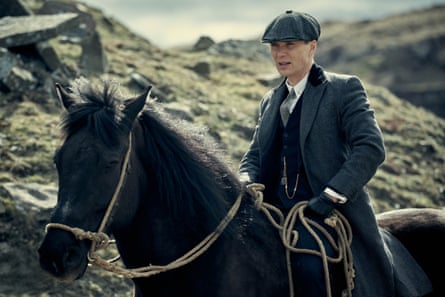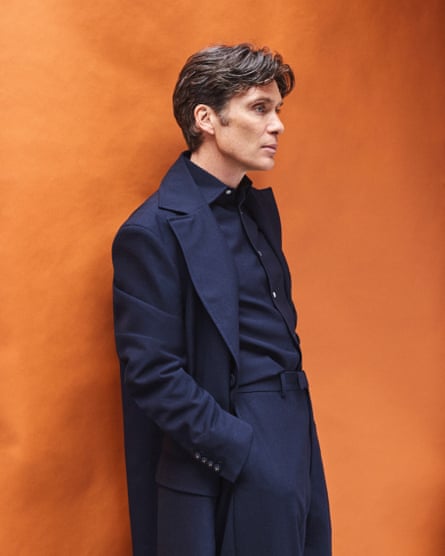Cillian Murphy: enigmatic, intense … and now he plays a real blinder in Oppenheimer
Having nailed it as a Batman baddie and a Brummie gangster, the actor is tipped for an Oscar for his raging turn in Oppenheimer
Miranda Collinge
Saturday 22 July 2023
It is possible that somewhere, in a parallel universe, Cillian Murphy was Batman. The 47-year-old Irish actor auditioned for the role when the British director Christopher Nolan was casting Batman Begins, the 2005 film that would become the first in the Dark Knight trilogy. In this universe, however, Murphy lost out to Christian Bale.
The batsuit, he likes to admit, in typically self-deprecating style, was on the roomy side anyway, and he was instead offered the part of baby-faced villain Jonathan “Scarecrow” Crane. But not to worry. A couple of decades later, it seems that Nolan – and perhaps the cosmos itself – had bigger plans.
On 21 July, Oppenheimer, which Nolan directed and wrote, was released in cinemas around the world. Adapted from Kai Bird and Martin J Sherwin’s Pulitzer prize-winning biography, American Prometheus: The Triumph and Tragedy of J Robert Oppenheimer, it is the story of the brilliant American theoretical physicist who oversaw the development of the atomic bomb during the second world war, and would later be haunted by the unfathomable devastation it caused to the Japanese cities of Hiroshima and Nagasaki in 1945.
This time, when Nolan came to recruiting his lead, there would be no audition. “Chris will just call you up,” Murphy told me in late 2021 for a profile in Esquire, when his casting as Oppenheimer had just been announced, “and I always say yes, because they’re always amazing.”
“I’ve always been interested in stuff that is – I don’t want to say on the dark side, because that’s too reductive – the melancholic, or the ambiguous, or the more transgressive,” he told me in 2021. “That, to me, is drama. That is where the real stuff is to be mined.”

Nolan’s film, which is three hours long, certainly does some digging. Through richly coloured flashbacks, we watch Oppenheimer’s recollections of his academic career, crunching theories with Tom Conti’s Albert Einstein and Kenneth Branagh’s Niels Bohr; his complicated love life (to put it mildly) with lover Jean Tatlock (Florence Pugh) and wife Kitty (Emily Blunt); and his time overseeing the secret laboratory in Los Alamos, in the middle of the desert in New Mexico, where the bomb was developed.
Interspersed are staid black-and-white scenes, mostly from the notorious 1954 hearings instigated by US Atomic Energy Commission chairman Lewis Strauss (Robert Downey Jr), at which Oppenheimer’s life and reputation – particularly regarding his associations with the Communist party – are pulled apart.
Other than one staggering sequence depicting Trinity, the code name for the first nuclear bomb test in New Mexico’s Jornada del Muerto desert in 1945 (for a few terrible seconds, the entire screen roils with hellfire), Oppenheimer is not what one might call a “typical” Nolan film. There are no high-concept sci-fi action sequences, no elaborately choreographed scenes of warfare (the effects of the bombs dropped on Nagasaki and Hiroshima are suggested but not shown, already generating some critical debate).
What there is is Cillian Murphy: the stark planes of his face; his otherworldly blue eyes, conveying glacial deadness in one frame and cosmic awe in another; and his performance, which is meticulous, understated, and seems to rage from his very core.
For someone who turned out to be rather good at acting (putting it mildly again), it is curious that it was only through a random sequence of events that Murphy found his calling at all. The eldest of four children, his parents were both teachers – when he was cast in the Dark Knight films, the kids at his mother’s school nicknamed her “Batmam” – and the family lived in Ballintemple, County Cork.
His first love was music, as listeners of his occasional shows for BBC Radio 6 Music will be aware, and the band he formed with school friends, Sons of Mr Green Genes, the name inspired by a Frank Zappa song, went on to have some success: they were offered a record contract just as Murphy was failing the first year of a law degree that his parents had prodded him to take.
Around the same time, inspired by a drama module run at his school by renowned local theatre group Corcadorca, Murphy auditioned for their production of Disco Pigs, a new play by the young Irish playwright Enda Walsh. In August 1996, Sons of Mr Green Genes turned down the record deal (his parents felt his brother, Páidi, who was also in the band, was too young), and Murphy got the part. That same fateful summer, he also met artist Yvonne McGuinness; the couple, who married in 2004, have two teenage sons and live in a quiet Dublin suburb by the sea.
Murphy went on to star in films including Danny Boyle’s 2002 zombie movie 28 Days Later (the role with which he first caught Nolan’s eye), Neil Jordan’s Breakfast on Pluto (2005) and Ken Loach’s The Wind That Shakes the Barley (2006), as well as several critically acclaimed plays. However, it was a television gig – Steven Knight’s gritty and glossy BBC drama Peaky Blinders in which, for six series, concluding last year, Murphy played Tommy Shelby, the brutal, tormented leader of a Birmingham criminal dynasty in the interwar years – that made him a global star. (In 2021, it was ranked as the most searched-for Netflix show in the world.)

The attention that has come with his work – particularly Peaky Blinders, which spawned drastic haircuts, retro menswear trends, and all kinds of spicy fanfiction – has taken some getting used to. Murphy is almost pathologically self-effacing and low-key, and will be the first to describe, amusingly, the ways in which he is ill-equipped to deal with the bits about being an actor that aren’t acting: how torturous it is to sit in the green room before a TV chat show, watching the preceding guests dazzle the host with pre-prepared anecdotes, knowing that when it’s his turn he’ll be taciturn and monotone. Not that you can tell; Murphy exudes a calm, sphinx-like presence.
He will soon have to prepare for more sweaty-palmed green room waits. As the Oppenheimer reviews have come in, so, too, have the Oscar predictions. Despite the calibre of his career, and various wins and nominations of other kinds, Murphy has never had an Academy Award nod; now, there is a rumbling consensus that this could be his time. (Nolan, who has in past years received five nominations for best screenplay, director or picture, but won none of them, may also secretly be getting his hopes up.)
But whatever happens come awards season – and however Murphy may feel about it when it does – it seems that the cosmic gears are already in motion, and that a new stratospheric phase of his career has begun.
Miranda Collinge is deputy editor of Esquire
THE GUARDIAN




No comments:
Post a Comment